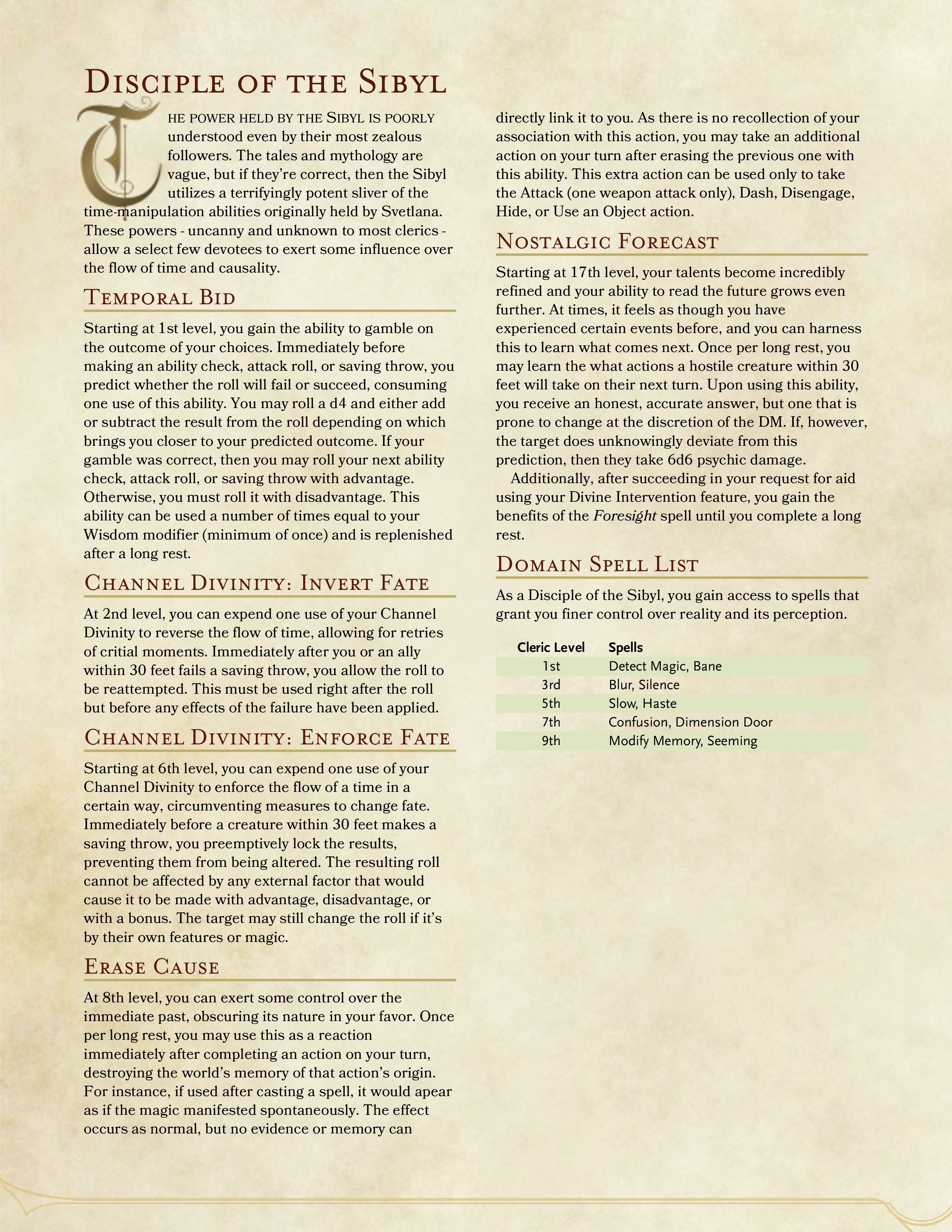I find this one the best out of the three cleric subclasses you shared in this community, and I actually disagree with you: I think it's pretty balanced overall.
Temporal Bid is a more fair Peace Cleric, which I like. You could cut the disadvantage part (which makes this feature more harmful than good) and it would still be fair. I think you should improve the wording, however. If I understood the effect correctly, it should be something like this:
Immediately before making an ability roll, skill check or saving throw, you can expend one use of this feature to declare the number that you think you will roll on the die. After you roll the die, you can also roll a d4 and add or subtract the result to the roll (your choice) to bring it closer to your predicted outcome. If you predicted the roll correctly, you gain advantage on your next attack roll, skill check or saving throw that you make.
You can use this feature a number of times equal to your Wisdom modifier, regaining all expended uses on a long rest.
Adding a d4 to any roll is certainly strong, but this is the only feature you gain at 1st level (most other clerics gain additional proficiencies), so I think it balances out. It's also less overall uses than the Peace Cleric's Emboldening Bond, and it only affects you. Good job at taking one of the most broken features of the entire game and turn it into a manageable one.
Invert Fate is just one use of Indomitable for everyone. It's okay early on, but falls off at later levels. There's a reason Indomitable has been sharply improved in OneDnD.
Enforce Fate is strong, which is why I think you made it a Channel Divinity (which breaks conventions, but, like, who cares). Negating advantage is nothing to write home about, but negating bonuses (which I suppose include bonuses gained by stats and proficiencies) is crazy strong and is going to make your (and your party's) save-or-suck spells a lot more strong than they would otherwise be. You do have only two uses though, and the enemies can still use legendary resistances, which leads me to believe that it's certainly a very strong feature, but still manageable. I think you could just make it once per long rest and cut the Channel Divinity part.
Erase Cause has more uses in social settings than battle. Single-use Haste is great for surviving a dangerous situation, but it's not going to break an encounter, especially considering that this cleric has no martial capabilities. Removing everyone's memory of any one spell you cast is cool, until you notice that, mechanically speaking, it's just a fancy Subtle Spell.
Nostalgic Forecast is great. The divination part is certainly flavourful and can be useful, allowing you to prepare for your enemy's next move, but it won't break an encounter. At 9th level, the DM can just tank the 6d6 damage and let the monster do whatever else they want it to do.
Free Foresight (a 9th level spell) for an entire day is the strong part - to me, this feature to me reads "noise, noise, noise, SECOND 9TH LEVEL SPELL SLOT, noise". That being said, it's once per 7 days, so the cleric won't be able to spam it at will. Also, Divine Intervention is a poorly worded feature that already allows the user to gain the benefits of a 9th level spell, so, like, it's nothing new, really. The strong part is that, the way you worded it, you can use Divine Intervention to gain any benefit you want, and then gain Foresight on top of that, but since "The DM chooses the nature of the intervention", they could just give you a minor benefit for the intervention itself to balance the free Foresight, if they wish to.
Overall, I like this subclass a lot. It's packed with flavour, and most of its features are strong but not broken, which is the perfect spot to land on for a full caster. Good job.
